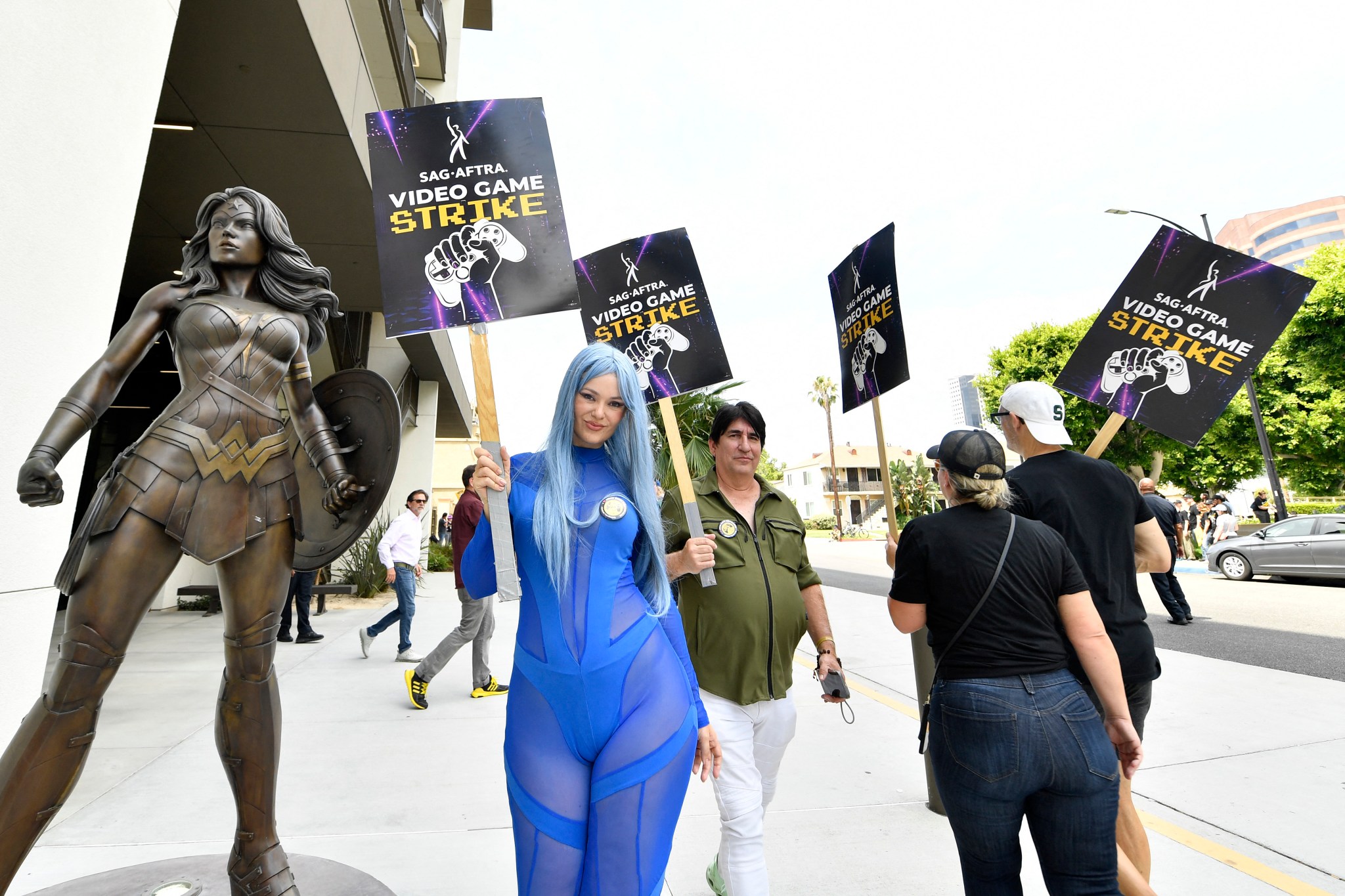
It’s not often economists are pleasantly surprised by the whims of the economy, but James von Moltke, CFO of Deutsche Bank, describes witnessing its resilience in 2023 as something of a “pinch me” moment.
At the outset of last year, Wall Street was convinced the U.S. was headed for a recession: a so-called ‘hard landing’ was on the cards according to many, with others believing a contraction of the industry was “inevitable.”
But that hasn’t happened.
Consumers have been surprisingly resilient, whether that meant spending the last of their lockdown cash or buying deliberately at peak trading times like Black Friday and Christmas.
This in turn has helped businesses keep their heads above water with stocks like the Magnificent 7 also buoyed by this year’s AI-prompted rally.
And while 2024 has been dubbed the year of “normalization”, von Moltke said he is among those who have an optimistic outlook for the next 12 months.
“My view is it’s a bit of a pinch me moment,” von Moltke told Bloomberg at the World Economic Forum in Davos.
“The resilience of not just economies but also of financial markets to the geopolitical crises that are going on, to the rise in interest rates and the fight against inflation has been remarkably strong.
“Whether that continues, I think we’re all hopeful and the sentiment for 2024 is positive. There are a lot of good supporting actors for that positive sentiment.”
The take is a far cry from the outlook issued by Deutsche Bank analysts even as late as October 2023.
In the latter half of last year, the institution’s macro strategist Henry Allen wrote: “As we look back at the 1970s today, there are a striking number of parallels with our own time.”
These parallels include oil shocks, war in Israel and persistent inflation which helped usher in a decade of stagflation—a toxic mix of weak economic growth and spiraling inflation.
Allen added: “Now is not a time to get complacent…the 1970s showed how unexpected shocks could rapidly send inflation higher once again.”
Perhaps a cocktail of a rally towards the end of the year and better-than-expected data—leading to a so-called ‘Goldilocks scenario’—has convinced experts like von Moltke that the stability is here to stay.
“The distance traveled so far has been surprising to the upside,” he continued.
An underlying resilience
Even when addressing concerns for the year ahead—setting aside any potential unknown fallout from elections, the Russian invasion of Ukraine and the Israel-Hamas conflict—von Moltke was hopeful industries could absorb issues, namely in the commercial real estate sector.
“The rise in rates [let to] a concern about the refinancing wave that would take place, particularly for the most sensitive areas … commercial real estate top among those,” he explained.
“My own view is whenever you see we’re climbing a mountain of refinancing it tends to get absorbed in the capital markets. I think the rate action since late last year is helpful in that regard and the overall market sentiment, but we would expect a significant increase in issuance this year as issuers address the refinancing waves that they have ahead.”
Even with that wave, von Moltke said industries would work through the issues “piece by piece” and different segments of the market would be able to absorb different shocks.
“I think there is the underlying resilience, strength, appetite to digest what still lies ahead,” he added.
A sentiment of calm in the fact of some economic disruption has been echoed by JPMorgan CEO Jamie Dimon, who said even if the U.S. does fall into a more drastic recession than the “mild” situation most are expecting, businesses would be able to ride out the storm.
“All of us in business have to learn to deal with the ups and downs of the economy,” he told Fox Business last week. “But I do think the crosscurrents are pretty high: the money running out, rates are high, QT [quantitative tightening] hasn’t happened yet.”
Bonus season
A less rosy outlook from von Moltke was addressed towards Deutsche Bank’s internal landscape, namely bonuses for staff.
The finance boss said variable pay “will reflect performance in 2023” but cautioned: “As you have seen in a number of different areas of the investment banking business in particular in 2023, it has been a difficult market.”
Deutsche Bank is set to report its full-year results in a matter of weeks, but Bloomberg reports the unit’s revenue declined 12% during the first nine months of 2023.
“We and our competitors want to pay for performance and work hard in managing our incentive compensation structures to do that,” von Moltke added.
Credit: Source link















